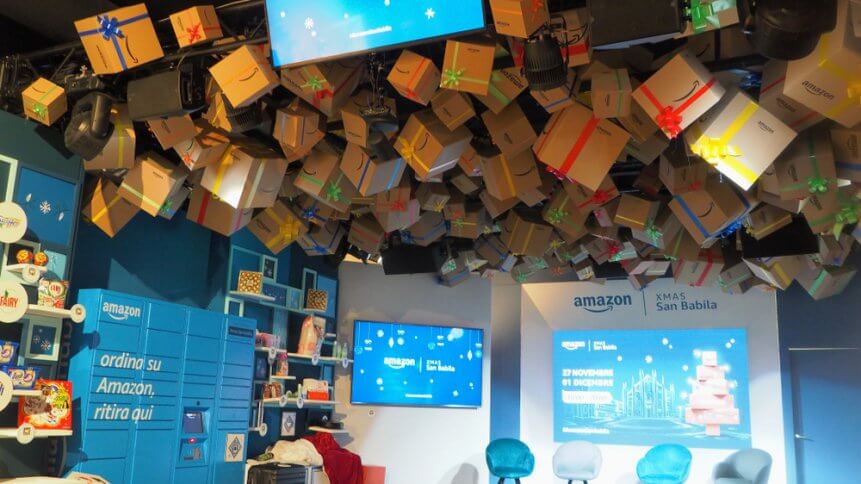The tech ensuring Black Friday is not bad for business

Over the last few weeks, our inboxes have been bombarded with Black Friday deals.
Newsfeeds are also littered with guides to help tech-savvy shoppers get the best deal from what has become the biggest shopping day in the world.
Reports that only one in 20 discounts are genuine has done little to dampen the spirits of bargain hunters who have their sights set on a shopping frenzy.
Recent polls suggest that fewer people are expected to visit physical shops and wrestle for cheap TV’s this year. With more people turning to online shopping on mobile devices, spare a few moments for nervous tech teams tasked with keeping everything online when the skyrocketing Black Friday traffic arrives.
Businesses of all sizes will be nervously working around the clock to ensure they stay online throughout the day. Many will remember when even Amazon’s servers buckled under pressure on Prime Day in 2018. The problem is that when Amazon web services encounter issues, so does half of the web.
Continuously monitoring the performance of websites, third party APIs, and ensuring that adequate security checks are in place are just a few essential tasks that are unseen by shoppers.
Ironically as many businesses attempt to educate their customers to only use secure HTTPS websites and only enter data when a padlock is present, yet mobile operator Three Mobile has a website showing as unsecure.
Personalized customer messaging
However, those that get the tech right can unlock huge opportunities over the next few days. According to the Adobe Analytics and Practical Ecommerce report, Thanksgiving 2018 generated 27.9 percent more online sales than a year before with an 8 percent increase.
With so much at stake, businesses have been meticulously planning their email marketing campaigns using sophisticated software that can identify customers by their interests, and location.
Brands are also now tasked with seeing their customers the way they see themselves. But the road to understanding a unique individual with specific needs stretches far beyond email. In-App chat features on messaging apps from Facebook and WhatsApp often include integrated direct messages into their campaigns.
Chatbots can also lighten the load on stretched resources by performing a variety of functions throughout the all-important customer journey. Getting the right balance right between helpful and creepy can be a challenge.
But personalization can be both welcome and effective if it adds value to the customer.
Businesses on their guard for Cyberattacks
Black Friday cyberattacks have already soared 275 percent. Tech-savvy shoppers will be busy trying to avoid lookalike domains designed to trick them. Many will also be on their guard against fake emails, SMS messages, and dodgy links in social media posts.
But what will businesses be looking out for?
Going offline on one of the biggest shopping days of the year famously cost J.Crews over US$700,000 in sales. Even big stores such as Macy’s have previously gone offline at the worst possible moment.
Here in 2019, before the sales even began, meanwhile, Macy’s admitted that its website leaked credit card info to hackers.
A carefully planned attack can affect every area of business. For example, a distributed denial-of-service attack can overwhelm servers with digital traffic until the site buckles. These attacks can even hit the supply chain at critical moments as well as the front end of a brands website causing widespread disruption a dramatic loss of revenue.
Even if they get lucky and avoid a hack, tech teams will be on the lookout for server or web issues. Elsewhere, marketing teams will be ready to quickly enter damage limitation mode and desperately try to appease angry customers who inevitably take to social media to complain. But it’s not all bad news.
The online land of opportunity for SMEs
Predictably, Amazon has promised its “biggest Black Friday sale ever.” The fact the tech behemoth has an incredibly 26 percent share of the Black Friday market combined with other big-name brands having an army of advertising machines at their disposal can be daunting for SMEs, but it shouldn’t be.
A California style gold rush in a non-product specific environment represents a huge opportunity for smaller businesses with limited resources too. With locality on their side, SMEs already have the edge over the Amazon’s of the world. But, an increasing selection of tech tools leveraging AI is also levelling the playing field when it comes to increasing consumer engagement and simplifying the customer journey.
The product is no longer the differentiator. It’s digital experiences that are creating unique and higher quality goods and services. Smaller businesses that take advantage of the gap between the fast-paced world of online services and negative in-store experiences are providing an old-fashioned personal touch that Amazon could only dream of achieving.
In the UK, the big brands that created clone towns are looking tired and desperate. Consumers are demanding greater diversity. However, there are positive examples of cities that are attempting to limit chain stores to preserve small businesses and retain the character in neighbourhoods in cities such as Toronto.
A change in customer attitudes
The rise of ethical consumerism is responsible for many questioning their urge to buy new items that they want but not necessarily need. There is a trend towards better products that deliver value and human benefits without environmental costs attached in a move away from our current throwaway society.
Buy one get one free throw away items or 3 For 2 mix and match Christmas gifts are becoming unfashionable and seen as a wasteful as people begin dreaming of a green Christmas. Large retailers that failed to notice that zero waste living is on the up could quickly fall out of favour. But once again, it’s technology that is enabling us to do more with less and enhance sustainability.
The experience economy is not just a myth. We are increasingly valuing time over things. Why? Experiences such as a show, activity, course, cinema subscription, or a unique personalized gift make us happier and stay with us for longer.
As you repeatedly hit delete on marketing emails over the next few days, remember that it’s not all about shoppers grabbing bargains on the busiest shopping day of the year. There is a new narrative emerging that could affect the future of mass consumerism and events like Black Friday and Cyber Monday.
For businesses and retailers across the globe, technology will be the real deal on Black Friday, and this is something that nobody should take for granted or underestimate its transformative qualities. As a result, the future for small independent businesses could be much brighter than many think.









